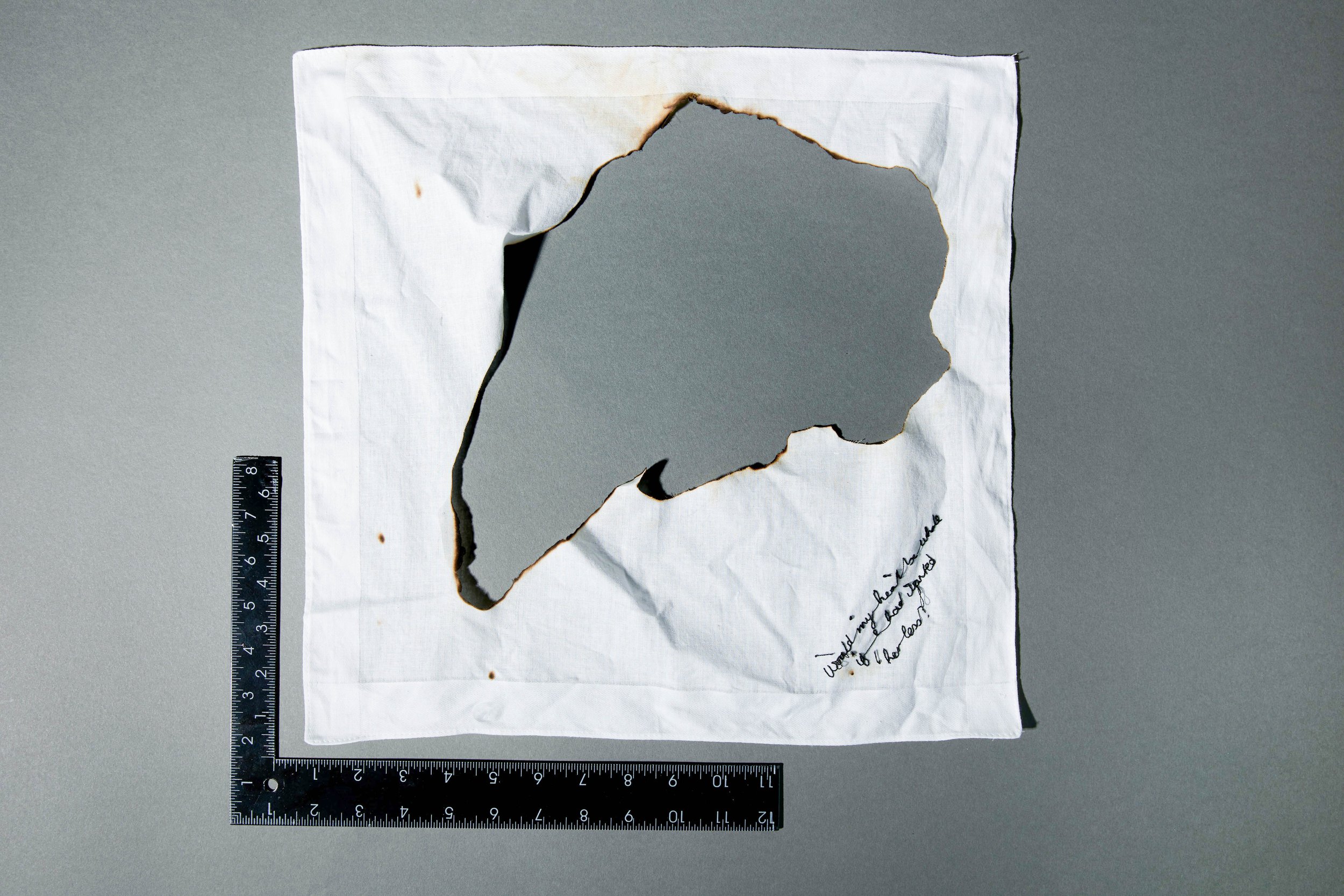5. Would my heart be whole if I had wanted her less?
Part 5 of the “Therapeutic” series of essays
“Would my heart be whole if I had wanted her less?”, part of the Therapeutic series 2022, UV printed on foamex, 60cm x 90cm x 0.3cm
I had wished for you for many years. I would talk to you before you were conceived, one hand on my lower belly, knowing the egg that would form you had been with me since birth. But before you there was another. Lost early, no more than a chemical line and a tidal wave of hope which crashed with the words “it’s not growing”. A scream which took hours to surface.
And after you, there was another. One that shouldn’t have been. One we were told wasn’t possible. And I wasn’t ready for it. My body was not recovered from your birth, from my near-death. The exploded fragments of my mind were only just coalescing and held together by fragile bonds.
The truth is I wanted only you. I grieve for the others, but I would not give up the chance I have to tie this single unbreakable thread. Their loss burned a dark hole in my soul, and I know it will not heal, but it is a price I am willing to pay. I cannot imagine not being consumed with wanting you. Perhaps I would not be me at all, and perhaps you would not be you.
One interpretation of the Delphic prescription “know yourself” is “when you question the oracle, examine yourself closely and the questions you are going to ask, those you wish to ask, and, since you must restrict yourself to the fewest questions and not ask too many, carefully consider yourself and what you need to know.”
In Ancient Greece, to know oneself was often coupled with, but subordinated to, the principle “to take care of oneself”. Plato said it is absurd not to know oneself if one aspires to know everything else. Seneca said he must take care of the estate close by. In Epictetus, to take care of the self is to understand it as the “subject of” a certain number of things: the subject of instrumental action, of relationships with other people, of behaviour and attitudes in general, and the subject also of relationships to oneself.
According to Foucault: “Stultitia is the other pole to the practice of the self. The practice of the self must deal with stultitia as its raw material and the objective is to escape from it… The stultus is someone who has not cared for himself, they are blown by the wind and open to the external world…[they] accept these representations without examining them, without knowing how to analyse what they represent…
To escape from Stultitia would be to strive towards the self as the only object one can will freely, absolutely and always…”
Perhaps I should accept my questions are pointless, meaningless - I am, regardless of my understanding of how or why. Spread over a life, they are ambiguous, they say neither things could be better or worse. Ripping off those bandages is the only way to be free.

